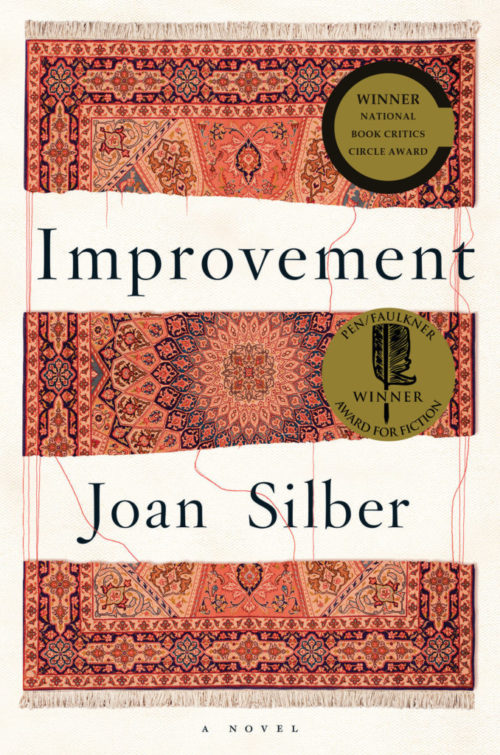“Everyone knows this can happen,” is the first sentence of Joan Silber’s incredible—and award-winning—2017 novel, Improvement. It’s the sort of opening that lures in the reader. The eye reaches for the next words that will define the “it,” and that word “happen,” suggests a story right from the get go. What, we ask? What do we all know can happen? Conviviality and consent arise instantly between the narrator and the reader. Man, that is a good way to start a novel. The entire first paragraph does heavy lifting.
Everyone knows this can happen. People travel and they find places they like so much they think they’ve risen to their best selves just by being there. They feel distant from everyone at home who can’t begin to understand. They take up with beautiful locals of the opposite sex, they settle in, they get used to how everything works, they make homes. But maybe not forever.
I had an aunt who was such a person. She went to Istanbul when she was in her twenties.
That first line also tells us this novel will be reflective, seeking universal, time-tested truths. But it’s so short. Five words. Did you notice that? That’s a lot of power in the first five words. The second is just as good. It suggests adventure and illusion: They “think they’ve risen,” to be their most evolved self, and that self can’t be understood by those who once knew her. Because the narrator is speaking directly to us, we, readers, feel an immediate intimacy and a willingness to question whether that is true for us. Here I am, scanning all of my travels abroad. Did I see myself as my best self?
Now we know that some novels look down at the world from 30,000 feet. But those heights aren’t sticky enough for most readers. Silber wisely and quickly moves into the particulars. First, it’s the particulars of how one becomes at home in a new place. “They take up with beautiful locals of the opposite sex, they settle in… they make homes.” We can picture this, and sense its appeal. Then she breaks the spell, immediately adding a conflict. “But maybe not forever.”
This is brilliant. She’s establishing the themes of the novel in this very first paragraph. Lives are built and broken, unexpectedly, and their stories are our stories by virtue of the telling and the hearing. But whose lives? Now we’re impatient to know. Immediately after, Silber tells us: Kiki’s.
I realize that Silber is making this look easy, and I know from experience it is not. I’m also struck by how well Silber needed to know her characters and themes before she could have written that paragraph. She had to have known why the narrator, Reina, latched on to the story, and why she needs to tell us. She needed to understand her character’s deep desire to understand and to connect the dots between lives before she could have gotten that first paragraph right.
Now to figure out mine.




Social